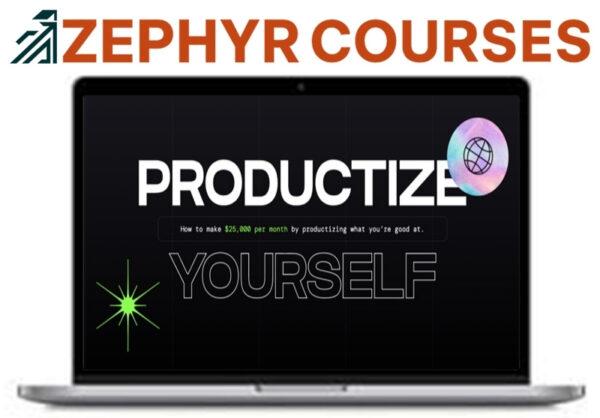Description
Understanding the Core Principles of Productizing Yourself
When you productize yourself, you treat your skills, knowledge, and experiences as assets you can package and offer to others. You’re not just selling your time—you’re creating value by identifying what makes you unique and how that benefits your audience.
Value creation is at the core; you need to understand what problems you solve and why your approach stands out. This isn’t about fitting into every market—it’s about market positioning. You’ll want to carve out a space where your expertise is clearly defined and recognized.
Steps to Transform Your Skills Into Scalable Offerings
Before you can scale your expertise, you need to break down your skills into clear, repeatable components that others can benefit from. Start with a thorough skill assessment to identify what you do best and what sets you apart.
Next, research market demand to confirm that your skills solve real problems people are willing to pay for. Once you’ve pinpointed your value, package your expertise into scalable offerings like courses, templates, or workshops. Focus on creating products that don’t rely on your direct involvement every time.
To streamline your transformation, consider:
- Listing your top three skills and their unique value.
- Researching what problems these skills solve for others.
- Validating demand with surveys or interviews.
- Outlining a scalable product based on your findings.
This targeted approach sets a strong foundation.
Real-World Success Stories and Lessons Learned
Although the journey to productize your skills can seem intimidating, countless individuals have already transformed their expertise into thriving, scalable businesses.
You’ll find success stories everywhere—designers turning templates into digital products, consultants launching online courses, and writers building subscription newsletters.
These examples prove you don’t need a massive audience or a big team to make a significant impact.
Frequently Asked Questions
What Platforms Does Brett Williams Recommend for Selling Digital Products?
When selling digital products, you should explore digital marketplaces like Gumroad, Shopify, and Etsy. These platforms make product promotion easy, help you reach wider audiences, and streamline payments so you can focus on creating more valuable content.
How Does Brett Handle Intellectual Property Concerns When Productizing?
When you productize, you should prioritize intellectual property protection and address legal considerations. Make sure you own your content, use clear licensing terms, and consult legal experts so you don’t risk infringement or lose control of your work.
What Are Brett’S Top Tools for Automating a Productized Business?
When you’re exploring automation strategies, you’ll want to compare tools like Zapier, Airtable, and Stripe. They streamline workflows, automate payments, and manage customer data, letting you focus on growing your productized business efficiently.
How Does Brett Manage Customer Support for His Productized Offerings?
You handle customer support by setting up clear support channels like live chat and email. Collect customer feedback regularly, so you can quickly address issues, improve your offerings, and guarantee clients always feel heard and valued.
What Mistakes Did Brett Make Early in His Productization Journey?
When you start productizing, you’ll face early challenges like unclear processes and overpromising. Those mistakes become valuable learning experiences, helping you refine your offer, set boundaries, and create more efficient systems as you grow.













 Bring the SEO [August 2024
Bring the SEO [August 2024  Alicia & Lorette – AI Innovators Club
Alicia & Lorette – AI Innovators Club  Arlin Moore – Tribe Accelerator
Arlin Moore – Tribe Accelerator  Alan Weiss – FRAMED! (Critical Thinking Skills for Consulting)
Alan Weiss – FRAMED! (Critical Thinking Skills for Consulting)  Advanced Articulation Course
Advanced Articulation Course  Aleric Heck – Alpha-AI YouTube Ads Course
Aleric Heck – Alpha-AI YouTube Ads Course  Allan Maman & Abraham Engel – The Two Comma Blueprint
Allan Maman & Abraham Engel – The Two Comma Blueprint  Andy Tanner – The 30-Day Cash Flow Blueprint
Andy Tanner – The 30-Day Cash Flow Blueprint  Alen Sehovic & Greg Kononenko – Accelerated Paydays
Alen Sehovic & Greg Kononenko – Accelerated Paydays  Arielle Phoenix – Bulk Publishing System + AI-Integrated Spreadsheet
Arielle Phoenix – Bulk Publishing System + AI-Integrated Spreadsheet